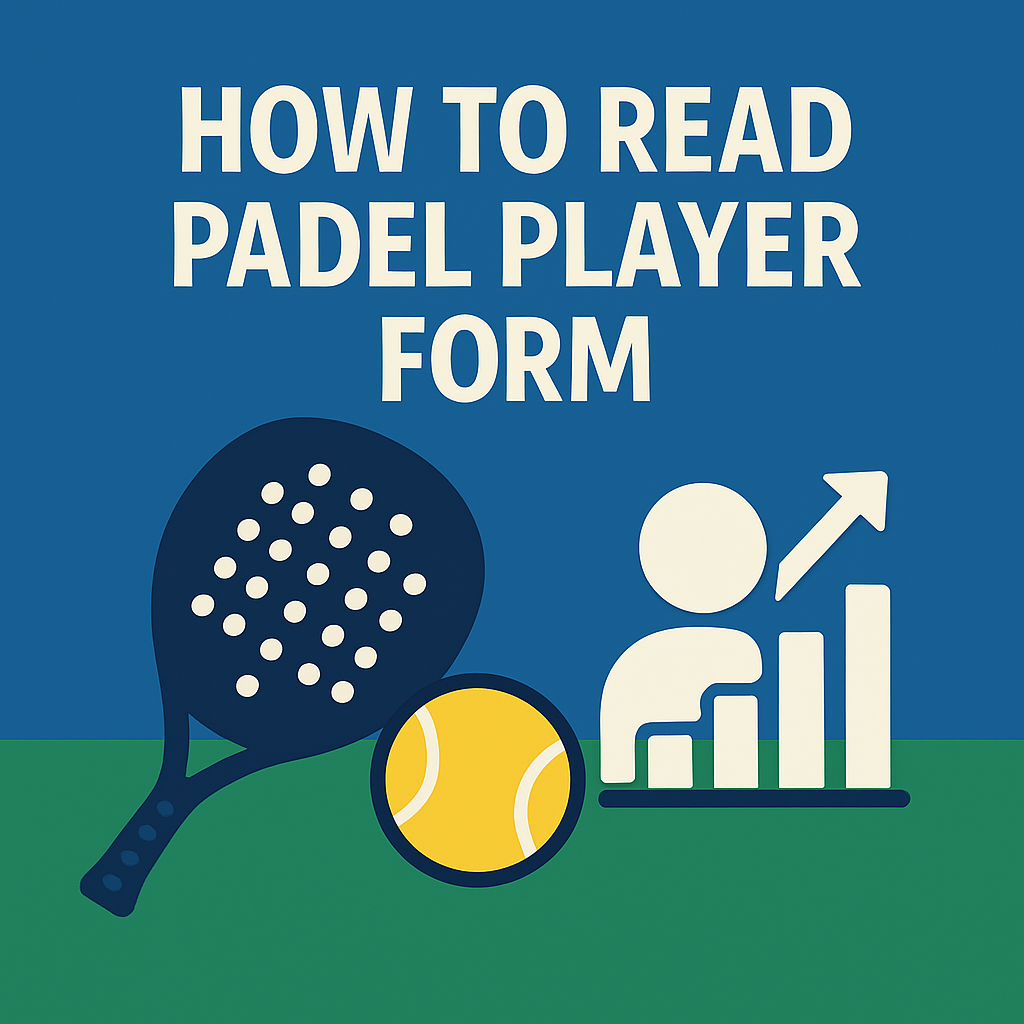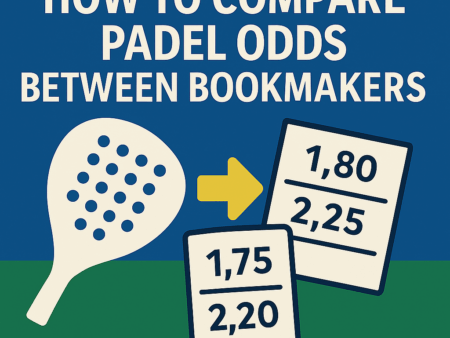
Understanding player form is one of the most powerful tools in padel betting. Rankings, reputation, and social media hype matter far less than recent performance trends.
This guide shows you exactly how to analyse form like a professional — using simple, actionable indicators that predict match outcomes.
🟦 What “Form” Really Means in Padel
Form is NOT:
- A player’s ranking
- Their long-term career performance
- Their number of Instagram followers
Form is:
- How well a pair has been performing over their last 5–10 matches
- Their consistency across sets
- Their level under pressure
- Their efficiency on key points
Form reflects real, current ability — not historical reputation.
🟩 1. Analyse the Last 5–10 Matches (The Core Rule)
Patterns emerge quickly when you study recent matches.
Look for:
- Win streaks or losing streaks
- Tight wins (7–6, 7–5) vs dominant wins
- Whether they lost to weaker opponents
- The number of sets played (fatigue indicator)
Pro tip: Teams winning too many close matches often regress.
🟨 2. Check Set-by-Set Consistency
A team may be winning matches but showing inconsistencies inside them.
Watch for these signs:
- Losing first sets frequently
- Blowing leads late in sets
- Winning sets due to opponent errors, not their skill
Set-level data tells you whether a pair is controllable or volatile.
🟧 3. Examine Quality of Opposition
A pair may look hot on paper… until you discover they played:
- Lower-ranked teams
- Players outside the main tour
- Newly formed pairs
Form is only meaningful when evaluated in context.
Strong form against elite opponents is extremely valuable.
🟫 4. Evaluate Chemistry and Role Stability
Padel is a partnership sport.
Signs of strong chemistry:
- Clear left-side/right-side roles
- Consistent communication
- Minimal unforced errors
- Smooth court coverage
Signs of poor chemistry:
- Frequent side changes
- Visible frustration or arguing
- Miscommunication on lobs and walls
When chemistry falls apart, form collapses too.
🟥 5. Track Fatigue Indicators
Fatigue is a major factor in multi-day tournaments.
Watch for:
- Long 3-set battles
- Consecutive games in high heat
- Poor transitions between matches
- Medical timeouts
Fatigue impacts smashes, wall play, and net speed — all crucial in padel.
🟦 6. Look at Indoor vs Outdoor Performance Splits
Many players perform drastically differently depending on conditions.
Indoor specialists:
- Faster net play
- More aggressive volleys
- Better smash success
Outdoor specialists:
- Strong lob usage
- Fewer unforced errors in wind
- More tactical and patient
Always compare form within the relevant environment.
🟩 7. Evaluate Pressure Performance
Key moments decide padel matches.
Indicators of strong mental form:
- Conversion of break points
- High tiebreak win rate
- Calm under pressure
Indicators of poor mental form:
- Losing tiebreaks repeatedly
- Throwing away leads
- Struggling after early breaks
This is often the difference between favourites covering the handicap or collapsing.
🟨 8. Study Head-to-Head Trends
Some pairs simply match up better against others.
Check:
- Whether one team consistently wins
- How close previous matches were
- Stylistic clashes (lobs vs smashers)
Head-to-heads are especially important at elite levels.
🟧 9. Look for Signs of Improvement or Decline
Watch for:
- Coaching changes
- Injury recoveries
- New tactical approaches
- Weight changes
- Movement speed improvement
A declining player becomes a trap for favourite bettors.
🟫 10. Use Data, Not Guesswork (Advanced Tip)
If available, track:
- Break percentage
- Smash winners percentage
- Net control percentage
- Unforced error rate
These metrics reveal true form beyond match results.
🟥 Summary
To read padel player form accurately:
- Analyse the last 5–10 matches
- Break down set-by-set performance
- Compare quality of opponents
- Track chemistry and roles
- Watch fatigue levels
- Compare indoor/outdoor splits
- Evaluate pressure performance
- Check head-to-head matchups
- Look for long-term improvement or decline
- Use data when available
Mastering form evaluation gives you one of the biggest edges in padel betting.
This page connects directly to Pages 1–4 and builds the foundation for correct-score, handicap, and totals-based predictions later in the category.


